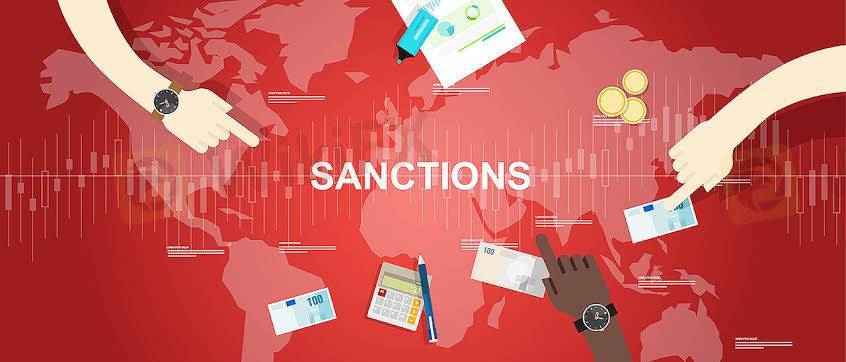
2025-02-13 17:36
IndustryImpact of sanctions on targeted economics
#firstdealofthenewyearastylz
Sanctions can have significant economic, political, and social impacts on targeted economies. Their effects depend on the type, scope, and enforcement of the sanctions, as well as the resilience of the targeted country. Here are some key impacts:
1. Economic Impact
GDP Contraction: Sanctions can slow economic growth or cause recessions by restricting trade, investment, and financial transactions.
Inflation & Currency Depreciation: Limited access to foreign exchange and reduced investor confidence can weaken the national currency, leading to inflation.
Decline in Foreign Investment: Sanctions create uncertainty, discouraging foreign investors and multinational companies from engaging with the targeted economy.
Reduction in Trade: Export bans, import restrictions, and blocked access to global markets can harm industries reliant on international trade.
Unemployment & Business Closures: Companies unable to access raw materials, capital, or markets may downsize or shut down, increasing unemployment.
2. Financial Impact
Banking Restrictions: Sanctions can freeze assets, block international transactions, and cut off access to global financial systems (e.g., SWIFT).
Debt Defaults & Credit Rating Downgrades: Sanctioned economies may struggle to service debt, leading to defaults and lower creditworthiness.
Capital Flight: Businesses and individuals may move assets abroad, weakening domestic financial stability.
3. Political & Social Impact
Government Revenue Loss: Sanctions on key industries (e.g., oil, gas, mining) reduce government income, affecting public services and infrastructure projects.
Humanitarian Consequences: Restrictions on essential goods (e.g., medicine, food, technology) can worsen living conditions and create shortages.
Political Destabilization: Economic hardship may lead to protests, civil unrest, or changes in government.
Increased Black Markets & Smuggling: Trade restrictions can lead to illicit trade networks that bypass official channels.
Greater Dependence on Alternative Partners: Sanctioned countries may turn to other economies (e.g., China, Russia, regional allies) to offset losses.
4. Long-term Structural Effects
Innovation & Self-Sufficiency: Sanctions can push a country to develop alternative industries or technological innovations to reduce dependence on foreign inputs.
Economic Isolation: Prolonged sanctions may push countries to develop parallel financial systems or economic blocs with other sanctioned nations.
Case Studies
Russia (Post-2022): Sanctions following the Ukraine invasion caused initial economic disruption, currency depreciation, and a decline in foreign investment. However, Russia adapted by increasing trade with China and other allies.
Iran: U.S. sanctions on oil exports have severely impacted Iran’s economy, leading to inflation and reduced GDP, but Iran has developed alternative trade routes.
North Korea: Long-term sanctions have led to economic isolation and reliance on illicit networks for trade.
Conclusion
Sanctions can significantly impact targeted economies, but their effectiveness varies. Some countries adapt by shifting trade partners, developing domestic industries, or engaging in illicit trade. The extent of the damage depends on factors like economic resilience, government policies, and international alliances.
Like 0
FX1618501564
Trader
Hot content
Industry
Event-A comment a day,Keep rewards worthy up to$27
Industry
Nigeria Event Giveaway-Win₦5000 Mobilephone Credit
Industry
Nigeria Event Giveaway-Win ₦2500 MobilePhoneCredit
Industry
South Africa Event-Come&Win 240ZAR Phone Credit
Industry
Nigeria Event-Discuss Forex&Win2500NGN PhoneCredit
Industry
[Nigeria Event]Discuss&win 2500 Naira Phone Credit
Forum category

Platform

Exhibition

Agent

Recruitment

EA

Industry

Market

Index
Impact of sanctions on targeted economics
 Hong Kong | 2025-02-13 17:36
Hong Kong | 2025-02-13 17:36#firstdealofthenewyearastylz
Sanctions can have significant economic, political, and social impacts on targeted economies. Their effects depend on the type, scope, and enforcement of the sanctions, as well as the resilience of the targeted country. Here are some key impacts:
1. Economic Impact
GDP Contraction: Sanctions can slow economic growth or cause recessions by restricting trade, investment, and financial transactions.
Inflation & Currency Depreciation: Limited access to foreign exchange and reduced investor confidence can weaken the national currency, leading to inflation.
Decline in Foreign Investment: Sanctions create uncertainty, discouraging foreign investors and multinational companies from engaging with the targeted economy.
Reduction in Trade: Export bans, import restrictions, and blocked access to global markets can harm industries reliant on international trade.
Unemployment & Business Closures: Companies unable to access raw materials, capital, or markets may downsize or shut down, increasing unemployment.
2. Financial Impact
Banking Restrictions: Sanctions can freeze assets, block international transactions, and cut off access to global financial systems (e.g., SWIFT).
Debt Defaults & Credit Rating Downgrades: Sanctioned economies may struggle to service debt, leading to defaults and lower creditworthiness.
Capital Flight: Businesses and individuals may move assets abroad, weakening domestic financial stability.
3. Political & Social Impact
Government Revenue Loss: Sanctions on key industries (e.g., oil, gas, mining) reduce government income, affecting public services and infrastructure projects.
Humanitarian Consequences: Restrictions on essential goods (e.g., medicine, food, technology) can worsen living conditions and create shortages.
Political Destabilization: Economic hardship may lead to protests, civil unrest, or changes in government.
Increased Black Markets & Smuggling: Trade restrictions can lead to illicit trade networks that bypass official channels.
Greater Dependence on Alternative Partners: Sanctioned countries may turn to other economies (e.g., China, Russia, regional allies) to offset losses.
4. Long-term Structural Effects
Innovation & Self-Sufficiency: Sanctions can push a country to develop alternative industries or technological innovations to reduce dependence on foreign inputs.
Economic Isolation: Prolonged sanctions may push countries to develop parallel financial systems or economic blocs with other sanctioned nations.
Case Studies
Russia (Post-2022): Sanctions following the Ukraine invasion caused initial economic disruption, currency depreciation, and a decline in foreign investment. However, Russia adapted by increasing trade with China and other allies.
Iran: U.S. sanctions on oil exports have severely impacted Iran’s economy, leading to inflation and reduced GDP, but Iran has developed alternative trade routes.
North Korea: Long-term sanctions have led to economic isolation and reliance on illicit networks for trade.
Conclusion
Sanctions can significantly impact targeted economies, but their effectiveness varies. Some countries adapt by shifting trade partners, developing domestic industries, or engaging in illicit trade. The extent of the damage depends on factors like economic resilience, government policies, and international alliances.
Like 0
I want to comment, too
Submit
0Comments

There is no comment yet. Make the first one.

Submit
There is no comment yet. Make the first one.